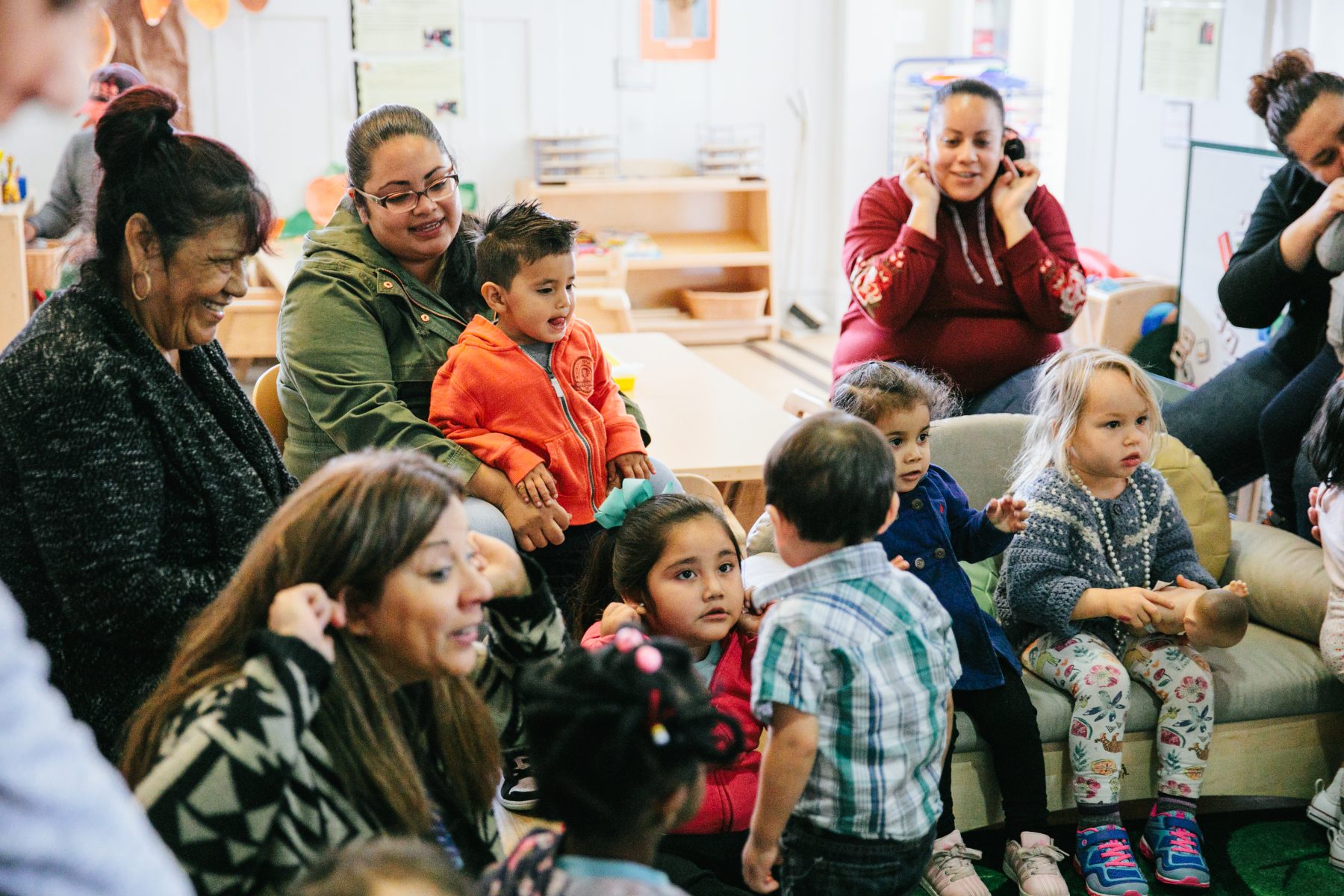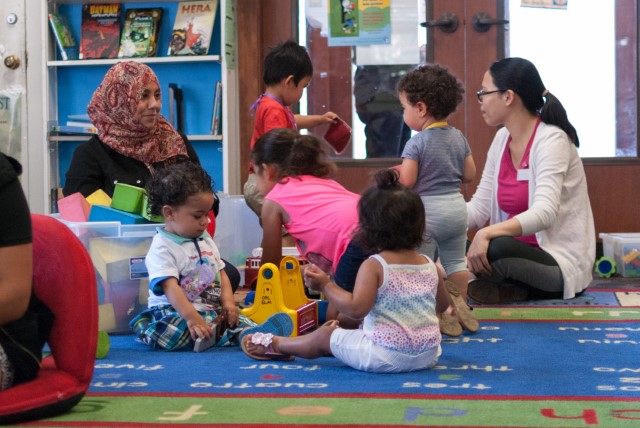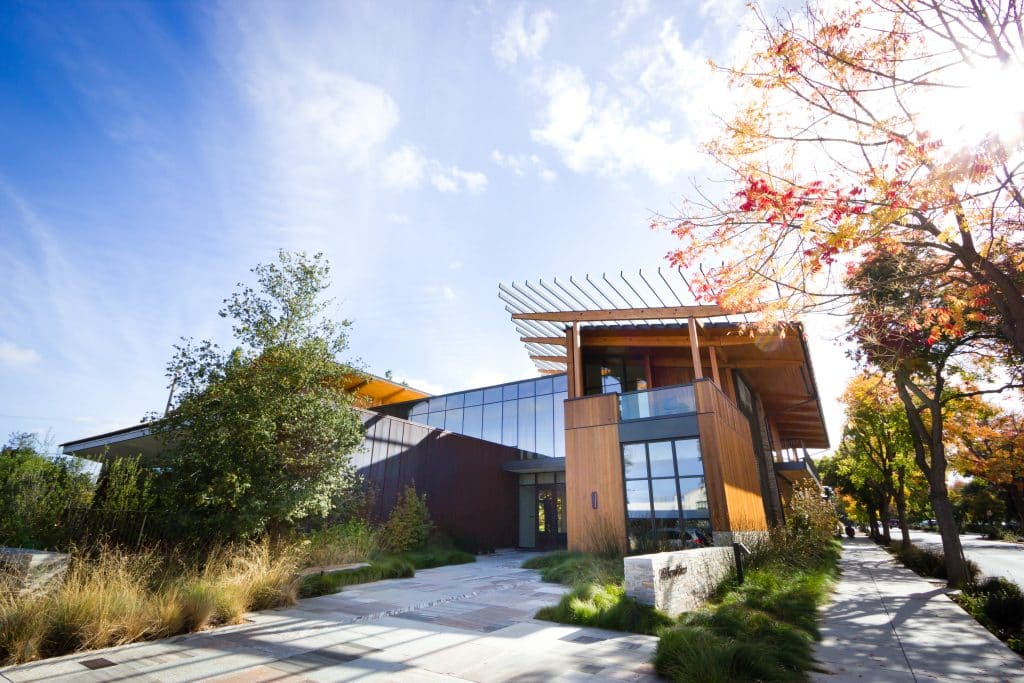In today’s new normal, when COVID-19 has entire communities sheltering in place, many parents are home with their kids, childcare centers are closed, and grandparent caregivers are quarantined. With so many essential workers heading off to their jobs, family, friend, and neighbor (FFN) caregivers themselves are often becoming essential workers too, as more parents are now relying on them to provide care to their young children. While navigating challenges like new work schedules for adults and shuttered organizations they would normally rely on for activities for the children in their care, FFN caregivers are turning to new and creative solutions like virtual gatherings to build connections usually fostered by in-person interactions.
Take, for example, one virtual training hosted a few weeks ago by Alejandra Reyes, program leader at Visión y Compromiso. After spending some time explaining the basic mechanics of Zoom, asking everyone to put themselves on mute, and showing how to use chat, raised hand, and breakout room features, the hard part of virtual training began. As Alejandra sat in front of her computer to conduct a training for FFN caregivers of young children in San Bernardino County, a screen full of training participants eager to learn new caregiving strategies stared back at her. Several of them had just gotten their first-ever Zoom tutorial from their own children or other family members, and some were even logged on as their children, a carry-over from virtual classrooms earlier that day. Others who did not have access to a computer dialed in from their cell phones to participate.
Visión y Compromiso’s trainings offer strategies and practical activities to FFN caregivers for how to better engage with children and nurture their development. Typically, these trainings take place through in-person sessions over the course of six weeks, with everyone’s full focus on Alejandra, and without technical difficulties. But when COVID-19 required everyone to shelter in place, Alejandra and others had to quickly adapt to a new virtual environment and take the trainings to Zoom.
Alejandra started the session, but was soon interrupted by distractions in the homes of her various sheltering-in-place participants. Children’s voices were heard playing in the background or asking for help with homework. Caregivers’ spouses made unexpected cameos to interrupt with quick questions for the caregiver. The chaos was further punctuated by the clanging and banging of pots and pans and the hissing of running water, as some caregivers prepared meals in their kitchens while participating in the training. Meanwhile, text messages were also popping up on Alejandra’s cell phone, from participants who felt more comfortable reaching her this way. But through all the chaos, at the end of the two hours, the caregivers said that they were happy to be part of the group, and to meet other FFN caregivers with whom they could relate and share stories in a time when there is more isolation.
As Alejandra relayed this experience to me during one of our check-in calls a few weeks ago, I was impressed with, although not surprised by, how nimble and adaptable FFN caregivers and the organizations who reach them have been through this pandemic, seeking to create connections with each other at a time when we all have to be apart.
For the past six years, I have been working closely with Visión y Compromiso and similar organizations through the Packard Foundation’s investment in informal care, specifically focusing on strengthening the resources and networks available to the FFN caregivers of young children. We believe that early learning is a crucial time for all adults in children’s lives to be building the foundations for them to grow up confident, healthy, and ready to learn. This includes the grandmas, aunties, and neighbors who provide critical care to the vast majority of young children in home-based, informal settings, and who bring a variety of strengths to supporting the healthy development of young children, including warm, nurturing relationships, shared cultural and linguistic identity, affordability, and availability to provide care during non-traditional hours.
In the same way FFN caregivers have had to become nimble while sheltering in place through COVID-19, the organizations that support them have had to adjust to this new world, becoming virtual connections in a time of isolation. Our grantee partner organizations have been reaching out virtually, from trainings on Zoom, to resources available on websites, to livestreaming events and convenings.
For example, Sesame Street in Communities has developed several resources for families and activities for FFN caregivers. Also, Zero to Three recently developed some great resources for grandparents when caring for young children, and Too Small to Fail shares ideas for talking, reading, singing, and playing through the day using everyday items that are already in the home. Given that in-person playgroups have been cancelled, the California Child Care Resource and Referral Network developed music and playtime weekly videos and Lotus Bloom hosts weekly circle time and stories for young children and their caregivers. Recognizing the prevalence of dual languages spoken in homes across California, Abriendo Puertas has developed trusted COVID resources in both English and Spanish. Before the current pandemic, Wonder for Good also developed a messaging guide called A Labor of Love, which offers some concrete examples of messaging and approaches that are helpful when reaching out to FFN caregivers.
With such a strong and nimble response in just the past few weeks and months alone, these organizations have reminded me that in times when headlines can feel bleak and there is so much uncertainty, one thing is for sure: organizations like these will continue to find creative ways to build deep connections with the children, families, and caregivers they serve.










